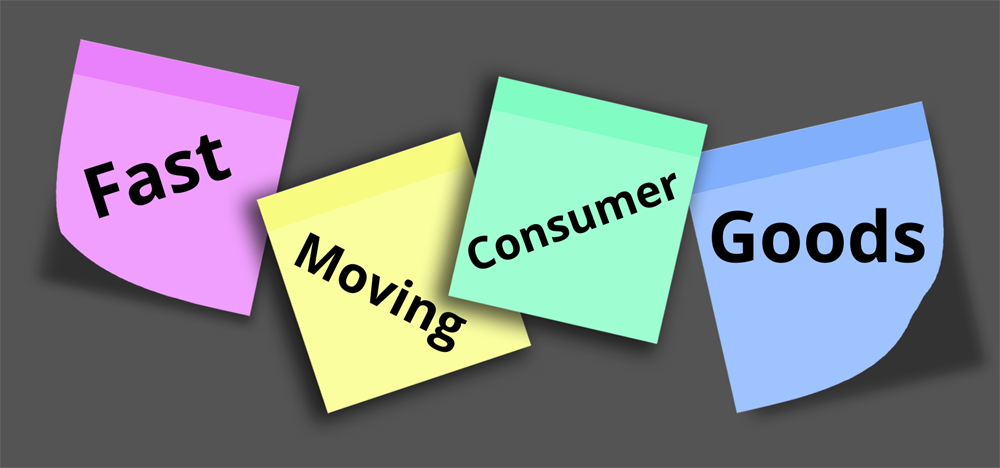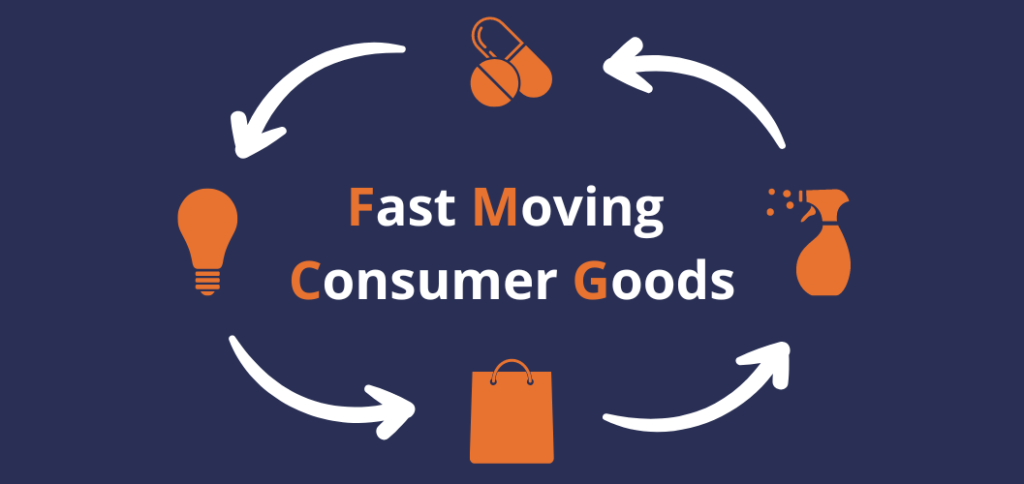Introduction
In today’s fast-paced world, we encounter numerous acronyms and abbreviations in various sectors. One such widely used term is FMCG. This article aims to delve deeper into the meaning of FMCG and explore its significance in the market. Earn about FMCG Full Form – A Quick Explanation

Understanding FMCG -FMCG Full Form
FMCG is an acronym for Fast-Moving Consumer Goods. These are everyday consumer products that have a quick turnover rate and are relatively low-cost. FMCG products are items that people use regularly and tend to replace frequently due to their perishable nature or high demand.
The Meaning of FMCG -FMCG Full Form
Fast-Moving Consumer Goods (FMCG) refer to a broad category of consumer products that are produced, distributed, and sold rapidly. These products encompass a wide range of items, including food and beverages, personal care products, household care products, and healthcare products.

FMCG Full Form – What Does It Stand For?
FMCG Full Form is “Fast-Moving Consumer Goods.” In some regions, FMCG is also known as Consumer Packaged Goods (CPG).
The Importance of FMCG in the Market
FMCG plays a vital role in the consumer market due to its nature and consumption patterns. These goods are essential in our daily lives and cater to our routine needs. The FMCG sector is characterized by high demand, frequent purchases, and rapid product turnover.
Key FMCG Products
1: Food and Beverages
One of the most significant segments within the FMCG industry is food and beverages. This category includes a wide variety of products such as snacks, dairy items, ready-to-eat meals, soft drinks, and more.
2: Personal Care Products
Personal care products are another crucial aspect of FMCG. This category includes items like soaps, shampoos, skincare products, grooming essentials, and cosmetics.
3: Household Care Products
Household care products are products that are used for cleaning and maintenance purposes. This category includes detergents, cleaning agents, air fresheners, and other related items.
4: Healthcare Products
Healthcare products within the FMCG sector consist of over-the-counter medications, vitamins, and other health-related items.
FMCG Industry Trends
The FMCG industry is dynamic and influenced by several emerging trends:
1: Technological Advancements
Technological innovations have transformed the FMCG sector. Online shopping, digital marketing, and automated production processes are some of the significant advancements in the industry.
2: Shifting Consumer Preferences
Consumer preferences are constantly evolving, with an increasing focus on health, sustainability, and ethical sourcing. FMCG companies need to adapt to these changing trends to stay competitive.
3: Sustainability Initiatives
Environmental concerns have pushed FMCG companies to adopt eco-friendly practices. Consumers are more conscious of the environmental impact of products they purchase.
The Role of FMCG in the Global Economy
The FMCG sector is a crucial contributor to the global economy. It generates substantial revenue, provides employment opportunities, and drives economic growth in many countries.
Top FMCG Companies in the World
Several FMCG companies have a significant presence worldwide. Brands such as Procter & Gamble, Nestlé, Unilever, and Coca-Cola are among the top players in the industry.
Career Opportunities in the FMCG Sector
The FMCG industry offers diverse career opportunities, ranging from sales and marketing to research and development, supply chain management, and brand management.
Challenges and Opportunities in the FMCG Industry
The FMCG sector faces several challenges and opportunities:
1: Supply Chain Management
Efficient supply chain management is critical to ensure that FMCG products reach consumers on time. This involves coordination between manufacturers, distributors, and retailers.
2: Branding and Marketing
In a competitive market, effective branding and marketing strategies are essential for FMCG companies to stand out and connect with consumers.
3: Intense Competition
The FMCG industry is highly competitive, with numerous brands vying for consumer attention and loyalty.
4: Changing Regulations
FMCG companies must navigate changing regulations and comply with various legal requirements in different markets.
FMCG and E-Commerce
The rise of e-commerce has revolutionized how FMCG products are sold and consumed. Online platforms offer convenience and a broader reach for both consumers and manufacturers.
FMCG’s Impact on the Environment
As the consumption of FMCG products increases, so does their impact on the environment. Companies are taking steps to reduce their carbon footprint and promote sustainability.
Conclusion
In conclusion, FFMCG Full Form for Fast-Moving Consumer Goods, and it plays a crucial role in our daily lives and the global economy. The industry faces both challenges and opportunities, driven by changing consumer preferences and technological advancements. Embracing sustainability and innovation will be key for FMCG companies to thrive in the ever-evolving market.